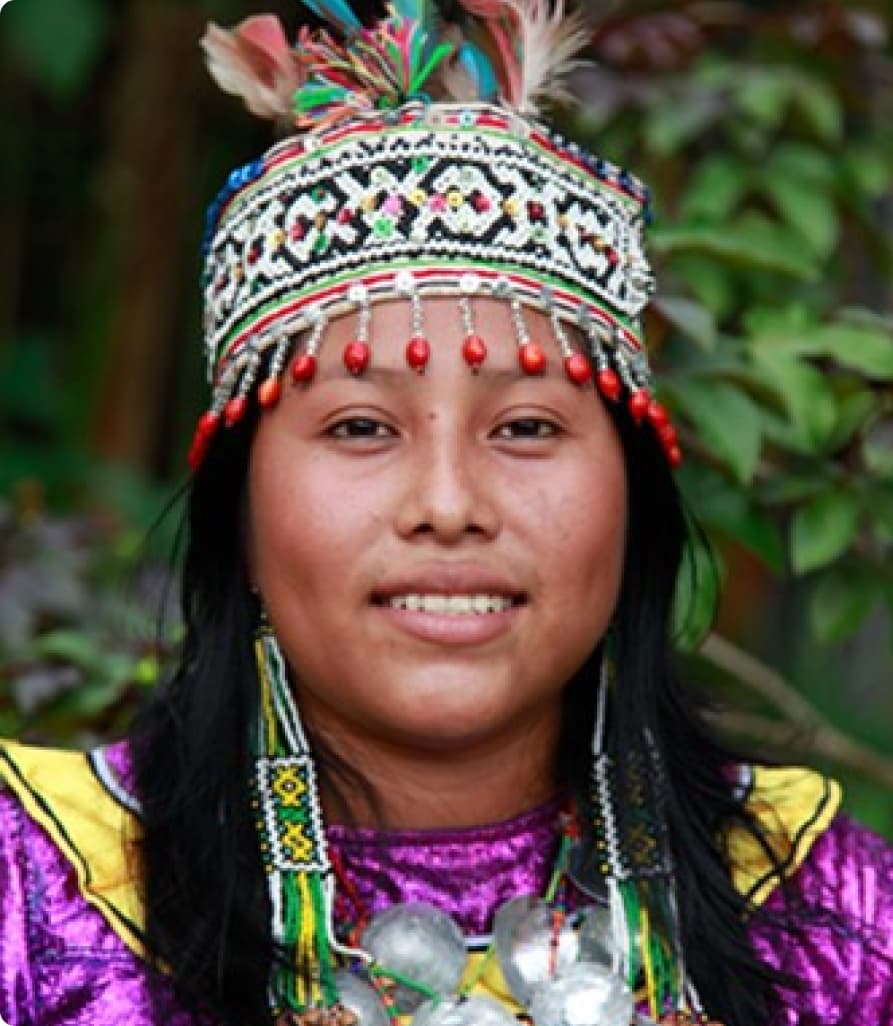
About the Center
Perpetuating Indigenous wisdom, culture, and ways of life
Our MISSION
is to perpetuate Indigenous spiritual and shamanic wisdom, culture, and traditions.
We SUPPORT
- projects that are conceived, implemented, and directed by the Indigenous communities that these projects directly benefit.
- Indigenous led events, projects, and learning experiences that promote the continuation of Indigenous healing practices, ceremony, song, dance, art, language, and wisdoms.
- connecting Indigenous healers of different cultures to honor the exchange of beliefs and ideas.
We BELIEVE
that by honoring and supporting Indigenous people in the perpetuation of their spiritual practices, we will inspire humanity to connect more deeply with our spiritual roots.

Frequently Asked Questions
Shaman is a word derived from the Tungus word şamān “One who sees in the dark,” the German word Schamane and Russian word šamán “Traditional Healer.” There may also be ties to the Chinese word shāmén, “Buddhist monk.” and sanskrit word śramaṇa, “ascetic, monk, devotee.” Shaman has become a blanket word referring to indiginous ceremonial leaders, medicine people, and healers. Shamanic belief systems are characterized by common attributes, like the recognition that all things are connected, and people that use non-ordinary consciousness to ‘travel’ or commune with the unseen aspects of reality or spirit world in order to gain knowledge, wisdom, and power. In this way, shamanism dates back at least 40,000 years with each Indigenous culture or tribe expressing its own unique and individual cosmology and epistemology.
Shamanic education from the perspective of the CSEE is about demonstrating to Western culture the validity and critical importance of indigenous knowledge and philosophy.... We strive to demonstrate that the contributions of Indigenous philosophies of the world has yet to be fully explored and appreciated, and we seek to lift up and amplify Indigenous voices. With the understanding that shamanism is a blanket term, we work to support each tribe in its own unique identity and lineage. We collaborate with these tribes as they determine their own course of preservation and dissemination of knowledge.
We seek to connect the shamanic people of many cultures so they can exchange ideas and wisdom for the benefit of their tribes and for humanity. We work to replace the ... involuntary and disempowering practice of appropriation with the empowering and voluntary act of exchange. CSEE recognizes that shamanism has its roots in Indigenous ancestry, and by watering that forest, each tree will flourish.